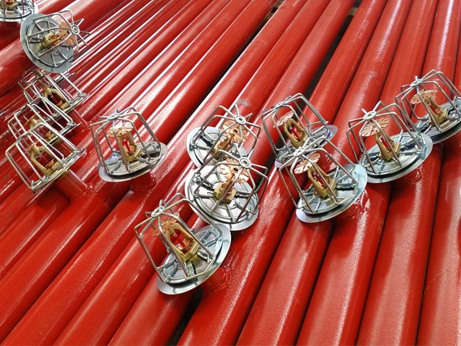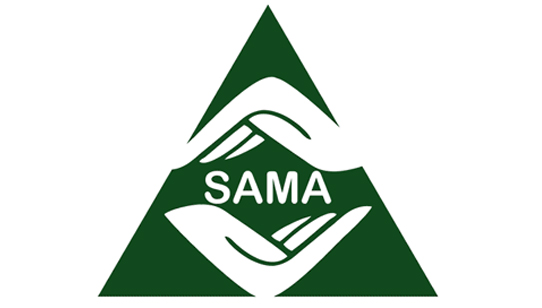Maximizing Safety: How the Right Commercial Fire Sprinkler System Can Protect Your Business?

Fire safety is a critical concern for any business, and one of the most effective ways to protect your property, employees, and assets is by installing a commercial fire sprinkler system. These systems are designed to automatically detect and control fires, minimizing damage and potentially saving lives. Selecting the right fire sprinkler system for your business can be the difference between a minor incident and a catastrophic loss. This article explores the types of fire sprinkler systems, their benefits, and key considerations for choosing the best system to maximize safety in your business.
The Importance of Fire Sprinkler Systems in Commercial Buildings
Fire sprinkler systems are a cornerstone of fire protection strategies in commercial buildings. They are designed to detect a fire early and suppress it, reducing the spread of flames, heat, and smoke. These systems have been proven to significantly decrease fire damage and, in many cases, completely extinguish a fire before the fire department arrives.
1. Life Safety: The primary goal of any fire protection system is to protect lives. Fire sprinkler systems can prevent the rapid spread of fire, providing occupants with more time to evacuate safely.
2. Property Protection: Fire sprinklers can reduce the amount of damage caused by fire by controlling it before it spreads. This not only protects the building itself but also minimizes damage to equipment, inventory, and other valuable assets.
3. Business Continuity: A major fire can disrupt business operations for weeks or even months. By limiting fire damage, sprinklers can help ensure that a business can resume operations more quickly, reducing downtime and financial losses.
4. Insurance Benefits: Many insurance companies offer lower premiums for businesses that have fire sprinkler systems installed. This is because the presence of sprinklers reduces the risk of extensive fire damage, which can lead to costly claims.
5. Compliance with Fire Codes: Fire codes and regulations often require the installation of sprinkler systems in commercial buildings. Ensuring compliance not only keeps your business legal but also enhances the overall safety of your premises.
Types of Commercial Fire Sprinkler Systems
Commercial fire sprinkler systems come in various types, each designed to address specific fire risks and building requirements. Understanding the different types of systems is crucial for selecting the right one for your business.
1. Wet Pipe Sprinkler Systems:
How It Works: Wet pipe systems are the most common type of sprinkler system. In this system, the pipes are filled with water at all times. When a sprinkler head is activated by heat, water is immediately discharged to extinguish the fire.
Applications: Wet pipe systems are suitable for buildings where the temperature is consistently above freezing, such as office buildings, retail spaces, and residential buildings.
Advantages: They are reliable, simple to maintain, and provide a quick response to fires since the water is already in the pipes.
2. Dry Pipe Sprinkler Systems:
How It Works: In dry pipe systems, the pipes are filled with pressurized air or nitrogen instead of water. When a sprinkler head activates, the air is released, allowing water to flow through the pipes and out of the sprinkler heads.
Applications: These systems are ideal for buildings where the pipes may be exposed to freezing temperatures, such as warehouses, unheated parking garages, and refrigerated storage areas.
Advantages: Dry pipe systems prevent the risk of frozen pipes, which can cause significant damage and compromise the system’s effectiveness.
3. Pre-Action Sprinkler Systems:
How It Works: Pre-action systems require a two-step process before water is released. First, a fire detection system must detect a fire and open a valve to allow water into the pipes. Then, heat from the fire will activate the sprinkler heads to discharge the water.
Applications: These systems are used in environments where accidental discharge could be particularly damaging, such as data centers, museums, and libraries.
Advantages: Pre-action systems offer an added layer of protection against accidental discharges, making them suitable for areas where water damage could be as detrimental as fire damage.
4. Deluge Sprinkler Systems:
How It Works: Deluge systems have open sprinkler heads and empty pipes. When a fire detection system senses a fire, a valve opens, and water flows through all the sprinkler heads simultaneously, flooding the area.
Applications: Deluge systems are used in high-hazard areas where rapid fire spread is a concern, such as chemical plants, aircraft hangars, and industrial facilities.
Advantages: These systems provide rapid and comprehensive coverage, making them effective in areas with highly flammable materials.
5. Foam Water Sprinkler Systems:
How It Works: Foam water systems mix water with a foam concentrate to create a foam solution that is discharged through the sprinkler heads. The foam smothers the fire and cools the area to prevent re-ignition.
Applications: These systems are ideal for environments where flammable liquids are present, such as airports, fuel storage areas, and chemical processing plants.
Advantages: Foam water systems are highly effective at extinguishing fires involving flammable liquids and preventing re-ignition.
6. Water Mist Systems:
How It Works: Water mist systems use high-pressure water to create a fine mist that cools the fire and displaces oxygen, suppressing the flames. The mist also reduces the amount of water damage compared to traditional sprinkler systems.
Applications: These systems are suitable for environments where water damage must be minimized, such as in historical buildings, telecommunications facilities, and shipboard environments.
Advantages: Water mist systems are effective at suppressing a wide range of fires while using less water, which minimizes water damage.
Key Considerations for Choosing the Right Fire Sprinkler System
When selecting a fire sprinkler system for your business, several factors should be considered to ensure you choose the most appropriate system for your specific needs.
1. Type of Business and Fire Risk: The nature of your business and the associated fire risks will heavily influence the type of sprinkler system you choose. For instance, a warehouse storing flammable materials may require a dry pipe or deluge system, while an office building might be adequately protected by a wet pipe system.
2. Building Design and Layout: The design and layout of your building will affect the installation of the sprinkler system. Considerations include ceiling height, the presence of sensitive equipment, and the overall building structure. Complex layouts may require specialized systems like pre-action or water mist systems.
3. Environmental Conditions: If your building is located in an area where temperatures regularly drop below freezing, a dry pipe system or other systems designed to prevent freezing should be considered. Additionally, buildings with specific environmental concerns, such as high humidity or corrosive atmospheres, may require customized systems or materials.
4. Regulatory Compliance: Ensure that the sprinkler system you choose meets local fire codes and industry regulations. Compliance with standards such as those set by the National Fire Protection Association (NFPA) is essential to avoid penalties and ensure the safety of your business.
5. Maintenance and Testing: Consider the maintenance requirements of the system. Wet pipe systems, for example, are easier to maintain than dry pipe or pre-action systems, which require more frequent inspections and testing. Regular maintenance is crucial to ensure the system’s reliability in the event of a fire.
6. Cost and Budget: The cost of installing a fire sprinkler system can vary widely depending on the type of system, the size of the building, and the complexity of the installation. While cost is an important factor, it should not be the sole determinant. Investing in a high-quality system that meets your specific needs can save money in the long run by preventing extensive fire damage.
7. Insurance Requirements: Consult with your insurance provider to understand their requirements for fire protection systems. Some insurers offer discounts for businesses that install specific types of sprinkler systems, which can offset the installation costs.
The Role of Professional Installation and Maintenance
The effectiveness of a fire sprinkler system largely depends on proper installation and regular maintenance. It’s crucial to work with certified professionals who have experience in installing and servicing commercial fire sprinkler systems.
1. Professional Installation: Proper installation ensures that the sprinkler system covers all areas of the building and operates correctly in the event of a fire. Professionals will assess the building, recommend the most suitable system, and ensure it complies with all relevant codes and standards.
2. Regular Maintenance: Routine inspections and maintenance are essential to keep the system in working order. This includes checking for leaks, ensuring that sprinkler heads are not obstructed, testing alarms, and verifying that all components are functioning correctly. Regular maintenance not only ensures compliance with fire codes but also gives you peace of mind knowing your system will perform when needed.
3. System Upgrades: As your business grows or as building codes evolve, you may need to upgrade your fire sprinkler system. Regular evaluations by professionals can help identify when upgrades are necessary to maintain optimal fire protection.
Conclusion
Selecting the right commercial fire sprinkler system is a critical decision for safeguarding your business against the devastating effects of fire. By understanding the various types of systems available and considering factors such as your business’s specific fire risks, building layout, and budget, you can choose a system that offers the best protection for your property, employees, and assets. Professional installation and ongoing maintenance are key to ensuring that your fire sprinkler system remains reliable and effective, providing you with the confidence that your business is well-protected.
(This "Fire Safety Blogs" Published in September 2024 Edition)













